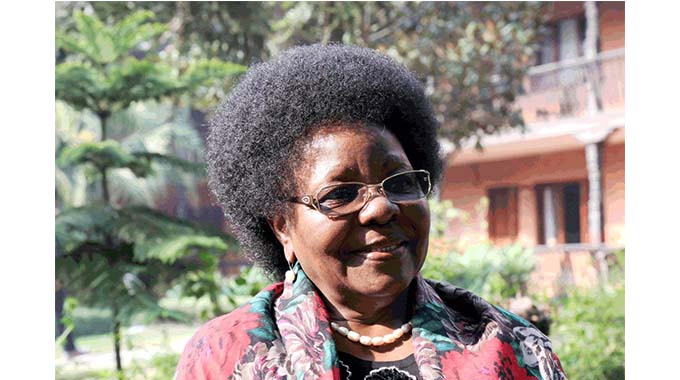Mainstream gender on climate change – Minister

Sukulwenkosi Dube-Matutu, Chronicle Reporter
THERE is a need to mainstream gender issues in climate change mitigation strategies as most rural women rely on natural resources for their livelihoods, Women Affairs, Community, Small and Medium Enterprises Development Minister, Dr Sithembiso Nyoni, has said.
In a speech read on her behalf by Matabeleland South Minister of State for Provincial Affairs and Devolution, Abedinico Ncube, at the province’s belated international women’s day commemorations in Gwanda recently, the minister said rural women shoulder the major responsibility for the upkeep of their families.
The national theme for this year’s Women’s Day commemorations, held globally on March, is “Gender mainstreaming and women empowerment in climate change and disaster risk management.” Minister Nyoni said women have limited access to resources, environmental goods and services.
“Women are highly dependent on local natural resources for their livelihoods, particularly in rural areas where they shoulder the major responsibility for the family upkeep including household water supply, energy for cooking and heating as well as for food security,” she said. “However, this burden of care isn’t recognised in terms of remuneration. During disasters such as droughts, cyclones, floods and strong winds women tend to work more to restore and secure household livelihoods.
“This leaves less time for women to access training and education, develop skills to meaningfully participate in the economic mainstream, thus gender equality remains low.” Dr Nyoni said her ministry was working with other ministries to formulate gender sensitive polices and strategies to guard against climate change and disasters.
Examples include the Gender Action Plan on Climate Change and the Gender Action Plan on disaster risk management which was developed in collaboration with the Ministry of Local Government and Public Works and the Ministry of Public Service, Labour and Social Welfare and other Government departments.
Dr Nyoni said her ministry has also developed gender mainstreaming guidelines for 10 ministries and that the remaining 11 ministries will be developed this year. She said the International Women’s Day was important in acknowledging the voices of women and taking note of their diversity, their different roles and circumstances.
This year’s theme focused on how to achieve sustainable gender equality in the context of climate change, its impact on women and ways to mitigate it. Minister Nyoni said the country had made significant strides in achieving gender equality.“ Zimbabwe has a robust legal and institutional framework which promotes gender equality and women empowerment.
The Constitution is progressive in terms of advancing women’s rights as it contains an expansive bill of rights, gender equality notions and elaborates rights for women,” she said. The National Gender Policy provides for concrete measures and strategies to mainstream gender in various thematic areas such as constitutional and legal rights, economic empowerment, politics and decision making, health, education and training, environment and climate change among others. However, more needs to be done to promote the participation of women in politics and decision making, said Dr Nyoni.
She also said there was a need to economically empower women and girls as a sustainable way to achieve gender equality. As part of the provincial Women’s Day belated commemorations the Zimbabwe Women Microfinance Bank announced that it will be providing 56 groups of women in Matabeleland South province that have embarked on various livelihood projects with raw materials to manufacture their products. Groups that are set to benefit are those which produce sanitisers, dish washing liquid, petroleum jellies and those who operate bakeries. – @DubeMatutu








Comments